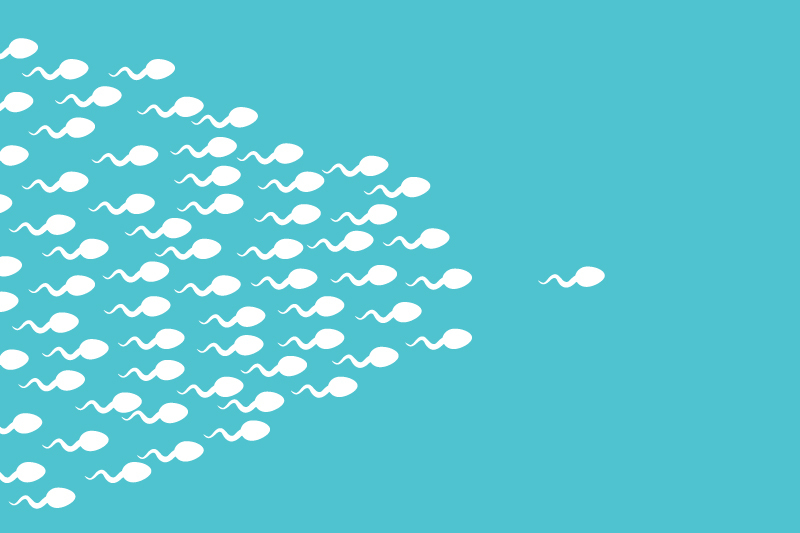When it comes to male infertility in pop culture, we've all seen the sperm bank movie scene: a guy walks into a gray, sterile patient room, is given a plastic cup and a stack of 'material', and told to submit a sample. Nothing can be worse (or anxiety-inducing) than this scenario for men and couples looking to learn more about their fertility or store sperm. And that's why Tom Smith invented Dadi, the first at-home male fertility test and sperm storage kit that launched in January 2019.
After his best friend was diagnosed with late-stage testicular cancer and needed to bank his sperm, he heard about how uncomfortable his experience had been.
"He described 3-4 hours trying to collect in a facility," says Tom Smith, CEO & Co-Founder of Dadi. "I started thinking about ways to make sperm storage more accessible and personal."
According to the American Society of Reproductive Medicine, men account for 30% of infertility cases.
"The subject of fertility is largely misunderstood. One in 6 couples have trouble conceiving, and a vast majority associate infertility with the female. Women go through painstaking efforts to get their fertility tested, and we want to empower more couples to understand the facts about male infertility," says Smith.
Here's how it works: After you order the kit for $99, the temperature-controlled kit is discreetly delivered to your home, where sperm is deposited and sent to Dadi's secure lab facility using a FedEx label. Within 24 hours of receipt, a certified lab technician analyzes your sperm deposit and emails you a personalized fertility health report. And here's the kicker: you also get a video of your sperm in action.
And it's not just sperm testing—Dadi also allows its users to bank sperm as well.
"Our mission is to normalize the whole conversation about family planning, fertility and infertility, and to educate men more about their reproductive health in a simple, accessible and affordable way."
And according to the National Institutes of Health, a complete lack of sperm is the cause of 10-15% of infertility in men.
Here are 9 other facts about sperm you should know.

What is sperm?
"Sperm is the vessel that carries a man's DNA to combine with a woman's egg, which makes an embryo," says Michael Eisenberg, MD, Medical Director at Dadi and urologist at Stanford University School of Medicine.
How long does sperm live?
"Outside the (male) body, it's estimated to live about 2 days," says Dr. Eisenberg.
How long does sperm live inside the female body?
"Sperm live approximately 72 hours inside the female reproductive tract," says Sarah Vij, MD, director of the Center for Male Fertility in the Glickman Urological and Kidney Institute at Cleveland Clinic.
How much sperm do men produce?
"A man produces over 1,000 sperm every second," says Dr. Eisenberg.
How long does it take a man to create sperm?
"It takes approximately 3 months to go from a stem cell to a mature sperm in the testicle," says Dr. Vij.
How long between ejaculations is ideal for conceiving?
"The optimal timing between ejaculations in a man trying to cause a pregnancy is 24-48 hours to allow for a release of a high number of motile sperm," says Dr. Vij.
How can men increase their sperm count/quality?
"In general, keeping a healthy weight, staying physically active and eating a well-balanced diet are good for a man's fertility," says Dr. Vij. "Diets high in sugar and fat are not ideal when a man is trying to cause a pregnancy."
What can decrease sperm count/quality?
"Many lifestyle factors are known to reduce a man's fertility potential: cigarette smoking, heavy alcohol use, obesity.
How long can sperm be banked and viable to use?
"Banked sperm can be used years later. There is no evidence that using sperm banked 20 years previously is worse than using sperm banked 2 years previously," says Dr. Vij.

